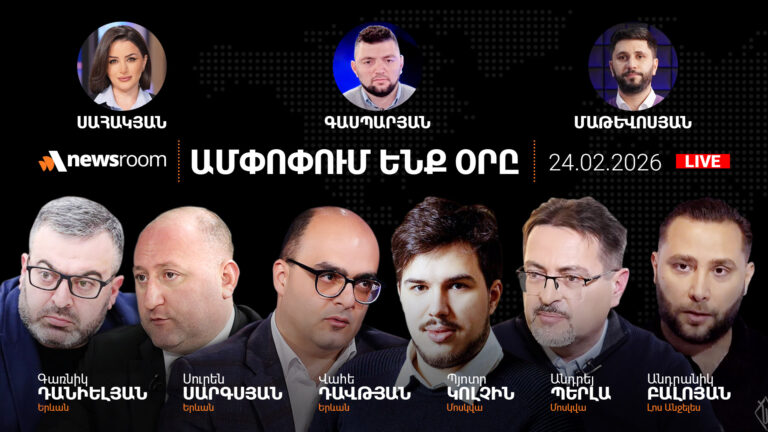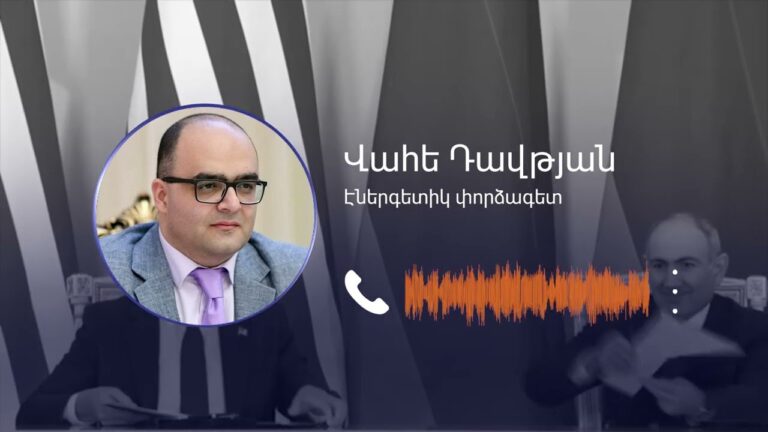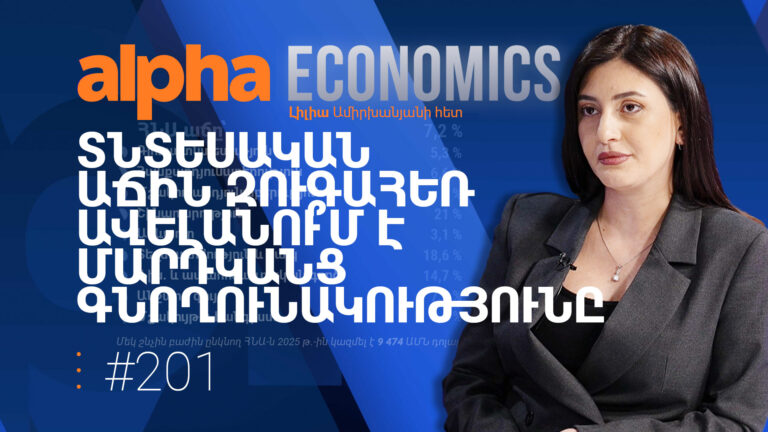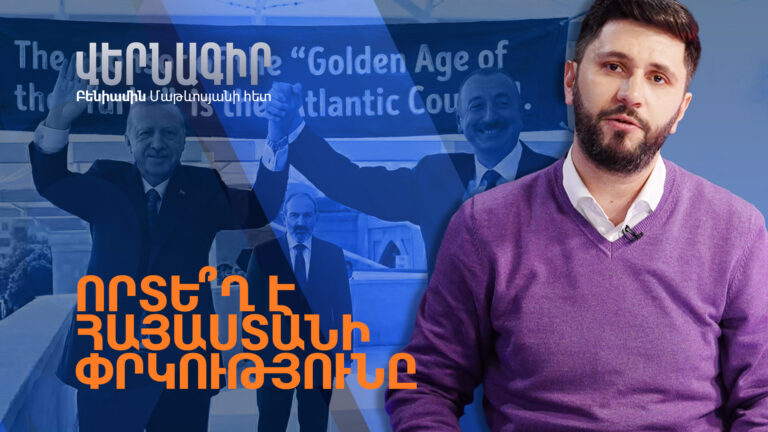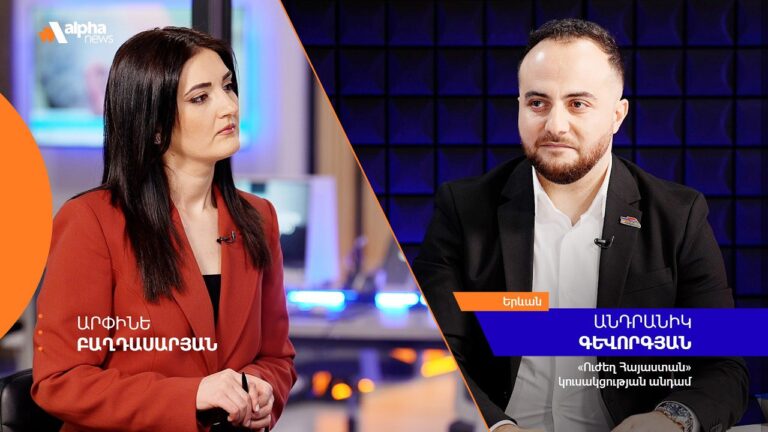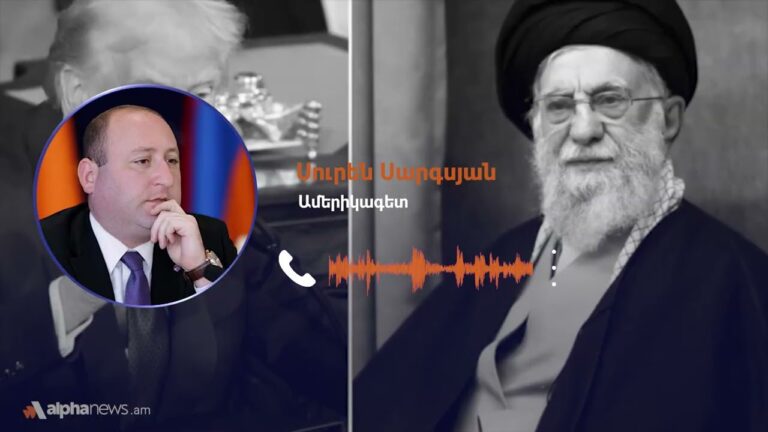What was Pashinyan actually paid $335 million for?
April 09 2024, 12:00
On April 5, we witnessed one of the public parts of the information special operation against Armenian statehood. What is it about?
Last Friday, April 5, Nikol Pashinyan had talks with President of the European Commission Ursula von der Leyen, US Secretary of State Antony Blinken, and High Representative of the European Union for Foreign Affairs and Security Policy Josep Borrell in Brussels. As a result of the “consultations”, Brussels and Washington promised to provide Armenia with €270 million and $65 million, respectively.
It was publicly stated that the EU wants to develop a positive agenda for Armenia and, by joining forces with the United States, demonstrate a firm commitment to the sovereignty, democracy, and sustainability of the country. However, not a word was mentioned about potential security cooperation, which, in the absence of peace or at least clear negotiations with Baku, is the key issue for Armenia.
If we leave aside all the elliptical wording in the final document adopted following the results of the “consultations”, then it should be said that Borrell described the essence of this political act very specifically and concisely. He said that the European Union will help Armenia resist “foreign influence and manipulation.” Translating from “diplomatic” into universal language, we understand that the EU allocates funds to further promote the anti-Russian propaganda machine in Armenia, which should justify the “vital necessity” of withdrawing the Russian military presence from Armenia.
In other words, 335 million is the price of Russia’s withdrawal from the region. 335 million is an investment with which the West will try to take revenge on Russia for the failure in Ukraine. Moreover, it will try to take revenge on Iran as well.
But why did we call what happened an “informational special operation”? For one simple reason, on the eve of the Brussels meeting, the Armenian authorities and the “pro-Western” (and in fact, Russophobic) “expert circles” in Armenia were fueling high expectations. It was stated that “Armenia’s life before and after April 5 will have a big difference”, that Pashinyan will bring billions from Brussels and guarantees of membership in the EU and NATO, and that this meeting will also bring peace to Armenia.
By the way, some may have a logical question: for what reason do the EU delegation in Armenia and the US Embassy in Armenia not silence their “clients” who create high expectations in society? Is it because both Brussels and Washington have already mentally “closed the Armenian state project” and therefore do not want to carry out strategic planning in the context of the public’s attitude towards the EU and the United States after the public’s expectations are not met? Maybe that’s why the people are being deceived so brazenly.
And the people were deceived. Very cynically. The people of Armenia will receive virtually nothing from these allocations. No one will provide membership in the EU and NATO to the country either (Ukraine’s experience has shown that the elites of post-Soviet countries agree to become a tool to fight against Russia even without membership in these structures). Moreover, Ilham Aliyev, having registered that Brussels and Washington did not intend to provide any significant military assistance to Armenia, immediately began attacking the territories of Armenia. Since April 5, there has been increased tension on the Armenian-Azerbaijani border. On April 6, the spokesperson of the European Commission for Foreign Affairs, Peter Stano, said that the EU cannot play the role of an arbitrator between Armenia and Azerbaijan, cannot use levers of pressure (in this case on Baku), and that it is Armenia and Azerbaijan that should negotiate.
Unfortunately, in Armenia today there are more discussions about the amount of support from the EU and the United States—and those who discuss it are disappointed (I wonder if the euro bureaucrats would have promised to pay 3-4 billion euros, the dissatisfied would have been satisfied or not). They are actually not realizing that with this step they are playing Pashinyan’s game and begin to assess the value of Armenia.
Just as after October 6, 2022, not everyone realized that Artsakh was placed on the geopolitical altar, so today, almost no one realized that Armenia was placed on the very same altar.
Think about it…

